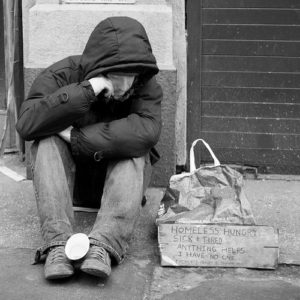By Eric King
The Homelessness Reduction Bill was approved by Parliament on Friday, with MPs unanimously voting in favour of changes to the way councils deal with individuals in need.
Under this bill, local authorities would have a legal duty to prevent and tackle homelessness from an earlier stage, applying the principle that prevention is always better than the cure. The bill has bene hailed by some as one of the best in at least three decades . However, there are still areas of concern. In an advanced country like Britain, with a welfare system, it is shameful that so many individuals are homeless. Some homeless people become homeless due to possession of their homes, or failure to pay their rent, and many other reasons.
However, there are still areas of concern. In an advanced country like Britain, with a welfare system, it is shameful that so many individuals are homeless. Some homeless people become homeless due to possession of their homes, or failure to pay their rent, and many other reasons. Some homeless people have never had a home and not one enough to have one. Many local councils have strict requirements that stand in the way of housing people. Priority in need refers to those who have a connection in a particular area, usually referring to family ties of some sort. There are people begging on the streets with placards reading homeless, but who are not actually homeless.
Begging
It must be noted that not everybody seen begging on the streets is actually homeless.Many are alcoholics and drug addicts trying to feed their habit, and many have a roof over their head. This has been checked and confirmed by the eye of media.com in past studies ww have done. Those who are genuinely homeless are generally individuals who have misused their opportunity of growing up in a country like the UK where free education is readily available at primary and secondary school level, missing out on the opportunity to develop valuable skills essential for the world of employment.
The homelessness reduction bill will help councils do more to help those who are involuntarily homeless and pursue more creative lines of alleviating the problem of homelessness. However, it fails to address all those missing qualities and characteristics necessary for homeless individuals to properly integrate with civil society.
The reality is that most people in decent jobs will always have a roof over their head. Addressing the problems of homelessness in the Uk means creating the circumstances for more individuals to develop hidden skills suppressed by years of inertia and reckless lifestyles. This must begin by establishing solid foundations in schools, but also identifying failures or underachievers at job centers, and compelling and monitoring their development until they find employment. The homelessness reduction bill will do well in addressing homelessness but ultimately fails in instituting preventative measures to reduce more cases of homelessness.
Unemployment is not always tantamount to failure or underachievement, but in many cases, a clear correlation can be observed. A homelessness reduction bill should include both an identification of the causes if homelessness and an effective set of measures designed to tackle and prevent it. Defining who qualifies for the description of homelessness is crucial since not everybody who appears homeless actually is.
Councils are facing considerable problems with homelessness, with fears that many parts of this bill are likely to increase costs for local authorities. A lot more money needs to be injected into the system to address the real problems of homelessness. If the government is serious about this initiative, it will need to consider more broadly how to achieve its goals.

